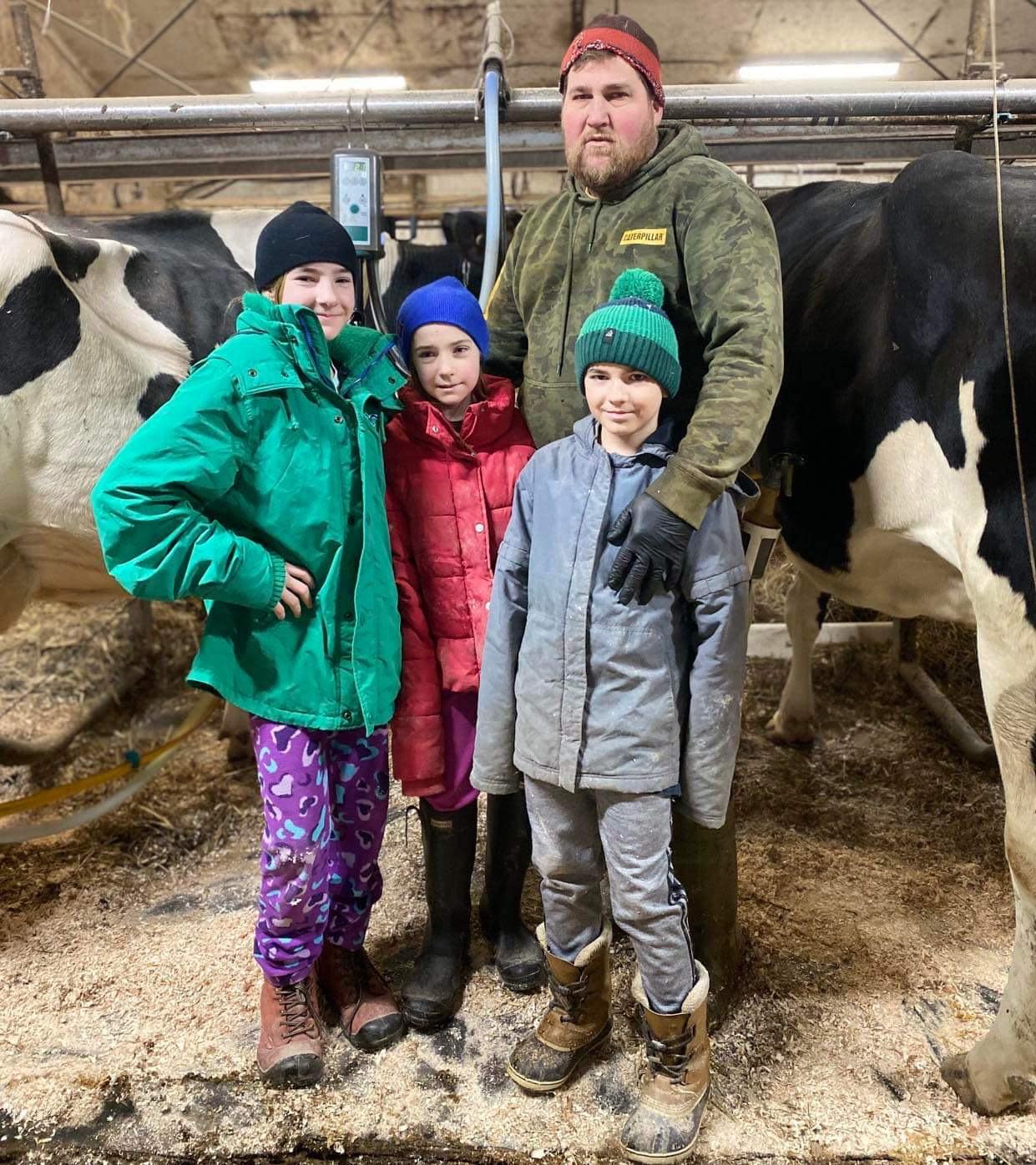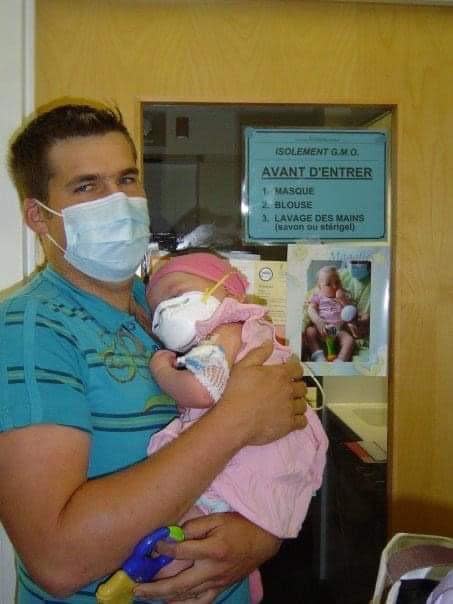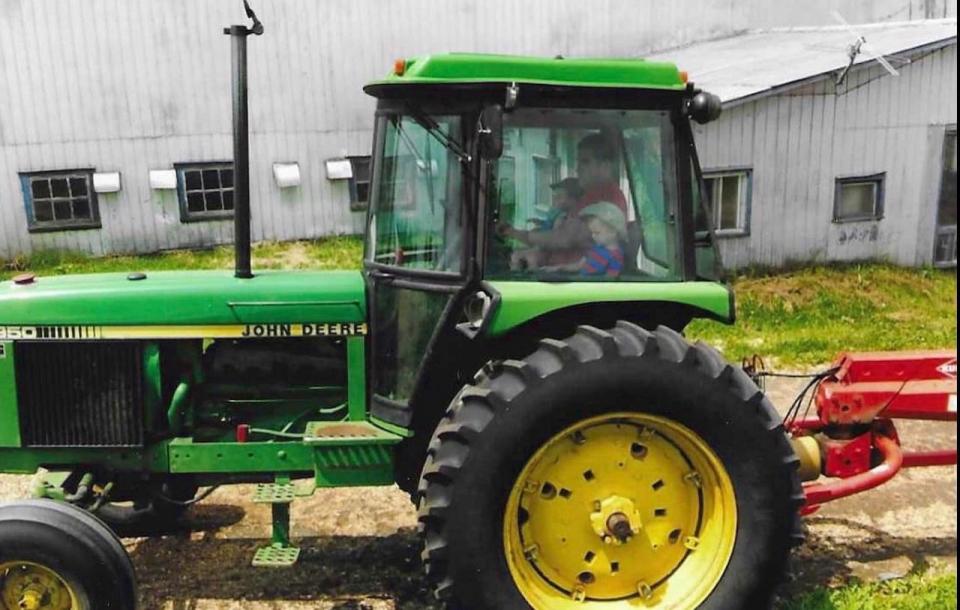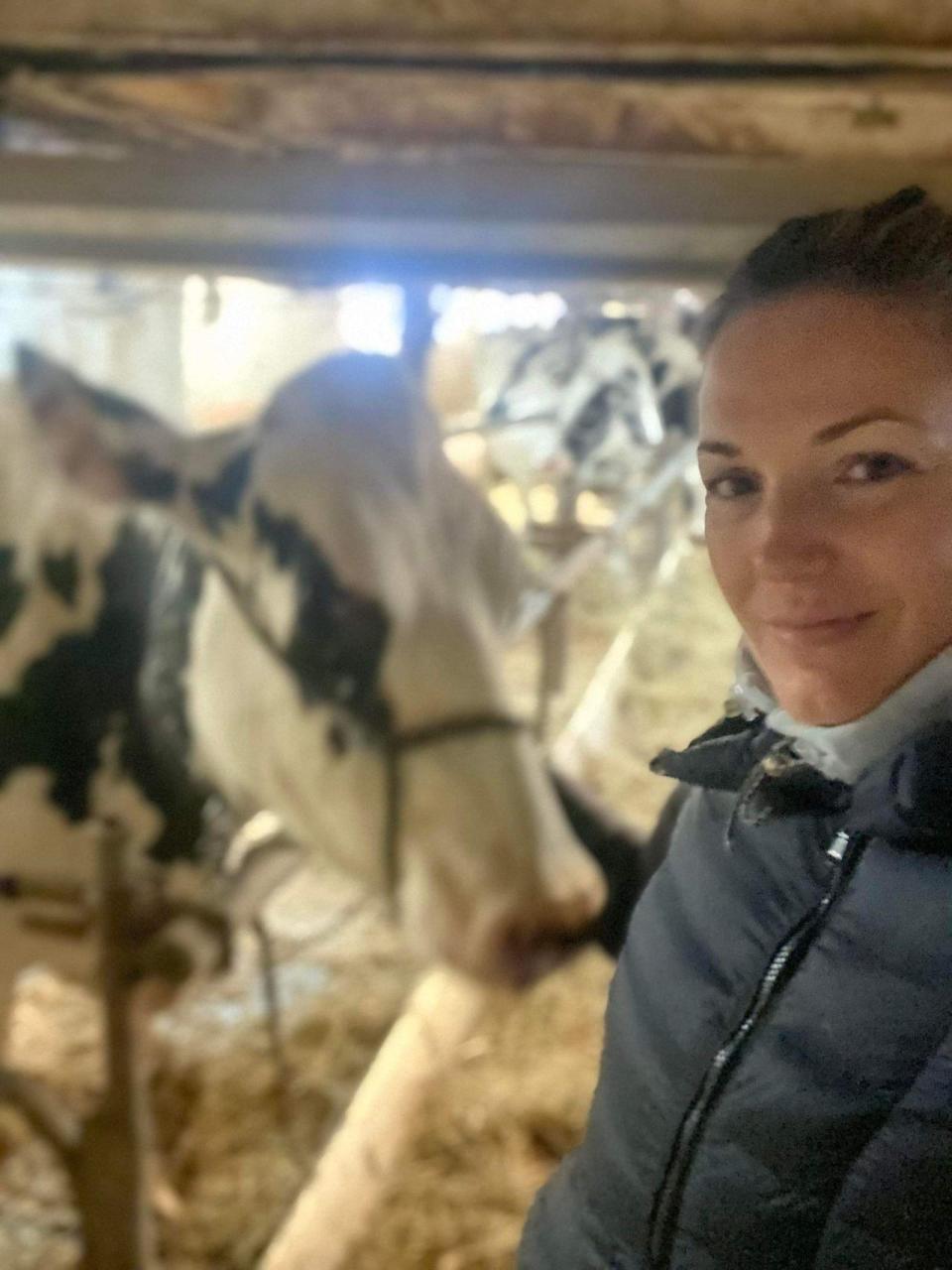Quebec farmers say they have little support and are paying the emotional and economic price

In 2010, just hours after Maryse Lecavalier and Mathieu Ferland's two-year-old daughter died, Ferland had to go back to milking the cows on the family's dairy farm in Stanstead, Que.
Their daughter, Magalie, had been in and out of the hospital for most of her short life and was receiving palliative care at home. Lecavalier says she thought they had more time.
Four days earlier that October, she had given birth to their second child.
"I had a birth and a death in the same week," said Lecavalier, adding that Ferland had to continue working the whole time.
"There was no replacement. We didn't really have a choice," said Lecavalier. "My story is tragic, but it's not just mine."

Mathieu Ferland pictured with his daughter Magalie. She was in and out of the hospital for most of her short life. (Submitted by Maryse Lecavalier)
Ferland's family has been in the dairy business for generations but, as of this week, they decided leased out their milk quota for two years. Like many others worn out by the constant grind, they are questioning their future in the industry.
Lecavalier says they couldn't find someone to step in and help, "so we had to sell our herd."
As nearly half a million public sector workers have been striking across the province, Lecavalier says the plight of farmers, made dire by rising costs and labour shortages, remains unnoticed by much of the population.
Last month, Lecavalier wrote an open letter published in Le Devoir calling on the government to provide better safety nets for farmers. She says they have little to no support when facing financial or personal hardships.
She said she felt compelled to tell her family's story "so that people know what agriculture is, what the challenges are and so that we find solutions."
Farmers who have to deal with an emergency, whether it's "grief, divorce, miscarriage, cancer — all these people still have to get back to the farm."
'We have to put our personal life on the side'
Marypascal Beauregard says farming is often an "invisible" industry.
Five years ago, she says she made the "overwhelming and heartbreaking" decision to sell the goats on her dairy farm in Sawyerville, Que. In her 17 years of farming she says she barely broke even.
Coupled with the struggles farmers have faced with climate change, the demands — and dangers — of the job, as well as the rising cost of living, she says many others may have to call it quits, too.
"We've lost a lot of people in our country and we lost some very competent people who farm and feed us," said Beauregard.
Farmers have few safety nets. There is no sick leave or maternity leave or bereavement leave.

Lecavalier says her partner's family has been in the dairy industry for generations. (Submitted by Maryse Lecavalier)
Beauregard says she had to deal with her own grief, returning to work shortly after giving birth in both 2007 and 2009. One of her babies died shortly after birth. The other was stillborn.
Less than a week after one birth, "I was in the public market selling my cheese," she said. "It's insane."
She says some people can turn to friends or family who are also in the industry for help, but when you're alone, or lose employees, there is no choice but to take on the extra work to ensure the animals survive and the money keeps coming in.
"We neglect ourselves and our families," said Beauregard. "We live always on the edge, with a lot of stress … It's quite enormous to deal with."
In an emailed statement, Quebec Agriculture Minister André Lamontagne said he supports the Au coeur des familles agricoles organization, which helps farmers in difficult situations.
He said he will be meeting with Lecavalier at the end of January to discuss the issues she raised in her open letter.
"Her story touched me. Like all farmers, she has my support," read the statement.

Maryse Lecavalier says some farmers have to pick up second jobs to make ends meet. (Submitted by Maryse Lecavalier)
'It becomes impossible to continue'
Lecavalier says something needs to give.
She wants Quebec to create a system that would provide replacement workers for farmers in emergency situations.
She's also asking for the government to ensure collective health insurance for farmers. Right now, she says their coverage under Québec's public health insurance plan isn't enough.
Lecavalier said the health-care system, with its shortage of family doctors and overflowing ERs, is another stressor for agriculture workers.
"[When] they go to the emergency room, let's face it, sometimes they have to leave because they won't have seen a doctor."
She says a living wage is another issue, with some farmers taking on second jobs and having to ask for help feeding their families.
"Then there are those who ask for Christmas baskets, said Lecavalier, adding she's been flooded by messages from farmers about their struggles. "There's no pay, they're caught up in it."
"When you find yourself completely alone with all of it, it becomes impossible to continue and that's why we are where we are."

